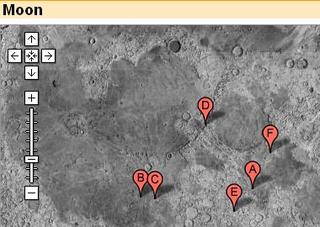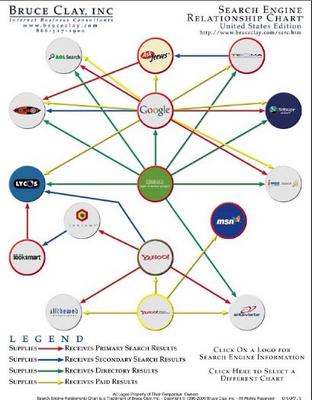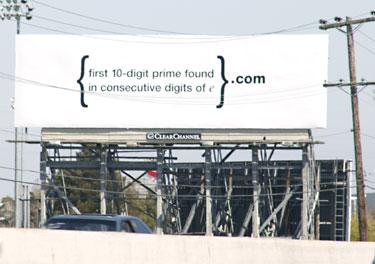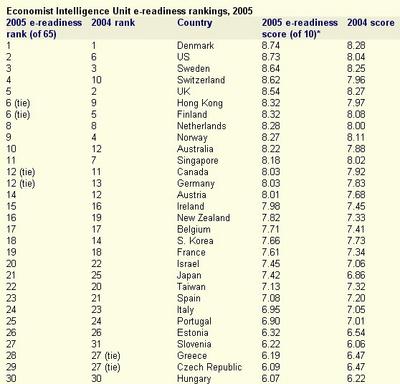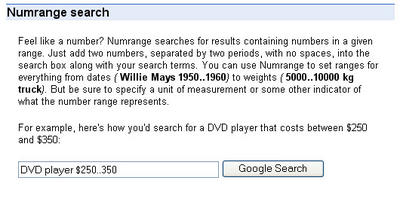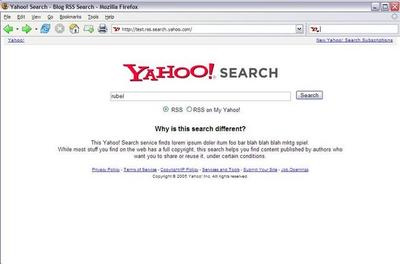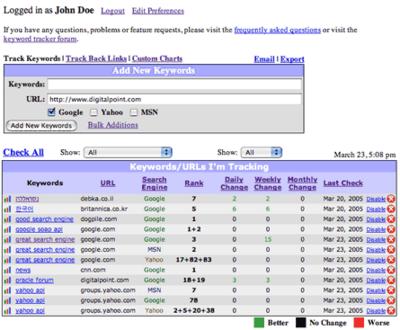David Naylor is one of the most recognized names in SEO. I asked for an interview. He said sure. And so I interviewed him, and it went like this...
When did you get started with SEO?
I guess it was in 1998 when I got into the SEO field. I’d been doing database programming as an IT manager for another company when I was asked if I would create their intranet. I ended up changing jobs and working for a small ISP doing web design.
What got you started in the SEO field?
I realised that it was no point having a website if I couldn’t be number one. After having many successes I decided that in 2003 I would buy the company out and put all of my efforts into my business.
I have had the pleasure of hanging around when you were chatting a few times, and felt like a sponge that just got dropped in water. Some of the ideas you come up with and some of the things you test are not things I would have thought of.
Where & how do you get the ideas of what to test?
Come on Aaron you do yourself great injustice. Ideas come from speaking to people like yourself and other friends. Sometimes the simplest word can grow into a fantastic idea, but without the right people to bounce an idea backwards and forwards with, I guess I would be just another two bit SEO trying to make a living on the net.
When it comes to testing the ideas that I thing are viable we have a great in house team of programmers that just love to prove me wrong.
Some people take great pride in using "our proprietary methods..." whereas you seem to be a bit more open than most. As more people know about certain techniques they get abused beyond belief and search engines are more likely to close the loopholes. How do you strike a balance with what to share?
Trust is a binding factor here. I would share my last dollar with a close friend and ideas are much cheaper in my eyes. At the end of the day if it wasn’t for the close community of friends I work with on a daily basis I guess I wouldn’t be the success I am today.
Are any of the best SEO techniques ever disclosed in open forums?
Hell no!
After a period of time it gets to where many advanced people stop learning as much from forums. You still regularly help at multiple forums. Do you still find yourself learning from them, or do you do that for friendships & comrodery, or do you do it to give back?
To be honest I do it for friendship and camaraderie – and you never know when you might need their help one day. There are still things that I learn in a sense, or get an idea to test from the threads that people start. As a close friend of mine said to me, “…some day, and that day may never come, I may call upon you to do a service for me… ?” - I think he stole the lines but the sentiment is there anyway.
Some people want to rank for Viagra? Is it worth the effort? How can you tell whether or not it is worth the effort? What terms are the best terms to target?
In the Viagra market there is only one term – “Viagra”. With Google’s tools it is getting harder and harder not to spam. It’s nice to be able to say that you rank for the keyword Viagra….it’s one of those keywords along with poker and loans… you get the picture.
Hypothetical situation: My rankings just dove. What should I do? Do you set up test flags to help show you how algorithms change?
Basically we have lots of datasets that we capture from Google on a daily/weekly basis so we can see subtle changes. Things can get messed up with the updates. But I think one of my most valuable assets as an SEO is the ability to see a change without the use of the reports, by eye, quicker than most.
Have you ever been totally wiped out by an update?
Hell yeh!
How long did it take you to get ranking again? What general steps are involved in that?
We tend to run 2 or 3 different programs at a time and live by the sword, whether it be blog spamming, scraper sites, content driven sites or just plain old clean SEO sites. I’m a great believer that Google only want to kill one idea at a time, so there’s never a massive loss of revenue.
Some people talk about domain names as though they are permanent and they only live with one. From having a few conversations I think you burn through a good number of them. How do you know when a domain has been penalized? Have you ever got a penalized site listed again? How hard is it to do?
Yeh, we’ve burnt a few in our time. If you’re talking about client sites then penalisation reasons can usually be spotted and what mistakes have been made are changed. Most algorithmic penalties will be lifted by the algo once the problem has been rectified. On my “build & burn” domains there is only one type of penalty and that is hand removal and we live by the motto – keep walking and never look back!
Should most webmasters use aggressive techniques? How do you decide when to use what techniques?
No not at all, most webmasters could easily gain top rankings from just cleaning up their website, taking good on page SEO and good internal link structure. If aggressive techniques are to be used the webmaster must be fully aware that the domain name has now just become expendable. The only time you really need to use aggressive techniques are in the highly competitive PPC market (porn, pills & casino).
Should new conservative webmasters only work on one domain? What advantages are there to only using one? If they use multiple domain names what precautions are associated with that?
It depends what you mean by the question Aaron, if you mean using multiple domain names going to the same site or creating gateway pages on those domains then I think that a conservative webmaster should only work on one domain. The main advantage is being able to test and tweak until they have homed in on their SEO skills. Too many fingers in too many pies – something will get overcooked and burnt.
A while ago I think I remember you writing something about not linking to the homepage from sitewide page footers using the same text the home page is optimized for. I think you also mentioned something about overly aggressive H1 tag usage causing flags or penalties of some sort. How do you know when certain techniques are deweighted or penalized?
Again it goes back to test data. It’s easy to create 100 pages with different % weights on different pages and wait and see what gets ranked and what gets tanked.
Can search engines tell where a link was from and how to process it? Do you believe they give more or less weight to links from directories, links that are deemed natural & relevant, or links that are bought?
I can definitely say that search engines know if you’re buying links or not, and yes search engines give less weight to links from certain areas on the internet. The way I always think about links is…If it’s really hard to get one link from a site then it’s worth getting… if all you have to do it click a button to add your URL then don’t you think it’s pretty worthless (eg. Blogs, guestbooks, directories etc..)
Occasionally people mention things like Google's recent temporal patent, TrustRank, Hilltop, Topic Specific PageRank, Latent Semantic Indexing, etc. Do you think any of these types of algorithms are at play? Does the average webmaster or SEO need to worry about those kinds of algorithms?
I think to a certain degree that the search engines will test and play with certain things like HillTop and LSI, but it may be 12 months or longer before we see a true LSI type index. Too many webmasters and SEO’s get carried away by PR which in my opinion is something that a webmaster will never see and toolbar PR is just for fun.
Do you find any public SEO tools useful? Or do you use all hand rolled stuff?
Yeh sure I do use public tools, but I tend not to use that many though. If I find one I like we will re-engineer it in house and slide it into our portfolio of tools.
Should the average person be automating their SEO process? What parts should they automate?
On SEO’s automating their process I suppose it depends on how good they are at letting the search engine know what they are up to. Most scripts I’ve seen tend to leave a foot print of some kind but if I had to guess what tools SEO’s should automate then perhaps, whether a link is a good/bad link, anchor text density, a good on page factor reporting system to mention a few.
Some industries are full of foul play, whereas others are fairly clean. How do you get an overview of an industry or term set prior to jumping in? Are there any underlying rules or tips for playing in infested waters?
I tend to jump in with both feet and see which SEO’s start hitting my IM asking me what I’m doing. As for rules for playing in infested waters – there’s no rules, the gloves come off and you come out fighting. As for tips – don’t hold back… use every weapon in your arsenal. To me infested waters are much more challenging and exciting.
Is there any SEO technique that you think is future proof?
No, the search engines are always catching up.
How do you see SEO changing? How do you think SEO will look in 2 or 5 or 10 years? Will links still be exceptionally important? Will something else be more important? Do you see social or collaborative filtering picking up? Personalization?
I can see personalisation kicking in a lot more in the future. One of the most important things in this industry is information. If you can identify from the individuals what they searched for and can group them into sectors then if a doctor searches for Viagra chances are he’s looking for medical research, if I’m looking for Viagra I’m looking for one of my sites, but if a 55 man is looking for Viagra he is probably looking for a supplier especially if he has a history of going to Viagra suppliers in the past.
SEO will become much darker as the search engines get cleverer, SEO’s will have to adopt and adapt new techniques.
I noticed you have already spammed MY Google personalized search. How did you let Google know what I wanted? :)
That’s dead easy – at the moment the personalisation search is very simplistic. It’s all about setting trends and patterns. I just rang Google up and told them of course! :)
Thanks for the interview Dave. If you want to check out his latest tips and thoughts on search.
(fonte www.search-marketing.info)
 Ask Jeeves dovrebbe annunciare il prossimo 1 Agosto il suo ingresso "autonomo" nel mondo del pay per click advertising con il lancio di una nuova piattaforma basata sul keyword bidding, che a quanto si mormora, assomiglierà al paid search di Google. Il bid minimo partirà da 5 centesimi.
Ask Jeeves dovrebbe annunciare il prossimo 1 Agosto il suo ingresso "autonomo" nel mondo del pay per click advertising con il lancio di una nuova piattaforma basata sul keyword bidding, che a quanto si mormora, assomiglierà al paid search di Google. Il bid minimo partirà da 5 centesimi.





